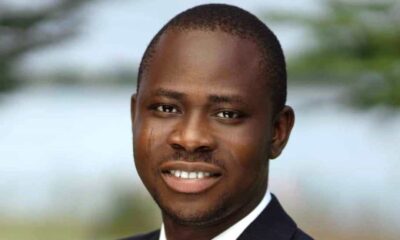News
Pressure for Survivial: Banks’ Borrowing from CBN Hits N52t


Banks’ borrowing from the Central Bank of Nigeria shot up by 80 per cent to N52 trillion in 2017, from N29 trillion in 2016, due to pressure to survive the impact of high interest rate regime and ceaseless liquidity mop-up, driven by the tight monetary policy of the apex bank.
To enjoy this huge liquidity lifeline, accessed through the apex bank’s Standing Lending Facility, the banks paid N40.48 billion as interest to the CBN, representing 84 per cent increase from N22 billion paid in 2016.
In sharp contrast, banks’ deposit placement with the apex bank, through its Standing Deposit Facility, fell by 15.6 per cent to N9.35 trillion, while interest earned also fell by 10 per cent to N4.27 billion in 2017.
According to analysts, the above development was triggered by the high interest rate regime, which made the CBN’s Standing Lending Facility the cheapest source of borrowing for banks, and the Standing Deposit Facility unattractive for deposit placement for banks.
Meanwhile, the above development exceeded Financial Vanguard projections for banks patronage of the SLF and SDF for 2017.
In an exclusive report published on Monday June 26, 2017, Financial Vanguard projected that banks’ borrowing from the apex bank will rise by 51 per cent to N45 trillion in 2017, while interest paid will also rise by 64 per cent to N22 billion.
Financial Vanguard also projected that banks’ deposit placement with the CBN will fall by 14.3 per cent to N15.6 trillion in 2017, while interest earned by banks was projected to rise moderately to N5.1 billion.
Banks borrowing from CBN and interest paid
According to the quarterly economic reports of the CBN, banks’ borrowing from the CBN fell by 9.6 per cent to N12.25 trillion in the first quarter of 2017 (Q1’2017) from N13 trillion in the fourth quarter of 2016 (Q4’2016).
But in the second quarter of 2017 (Q2’2017), banks’ borrowed more from the apex bank.
Their borrowings through the SLF rose sharply quarter-on-quarter by 19 percent to N14.6 trillion.
This trend, however, did not persist in the third quarter (Q3’2017) as borrowing dropped by 7 per cent to N13.6 trillion.
The borrowing further dropped by 14 per cent, quarter-on-quarter to N11.7 trillion in the fourth quarter (Q4’2017).
Interest paid by banks to the apex bank followed the same pattern.
In Q1’2017, banks paid N9.3 billion as interest to the CBN, up by 6.7 per cent, from N9.97 billion paid in Q4’2016.
In Q2’2017, interest paid by banks spiked by 47 per cent to N13.7 billion.
This increase was reversed in Q3’2017, as interest paid fell back to N9.3 per cent.
This trend was repeated in Q4’2017, as interest paid by banks fell by 14 per cent to N8.04 billion.
The above indicate that while banks’ borrowing from CBN and interest paid rose in the first half of 2017 (H1’2017), they however declined in the second half of the year (H2’2017).
Deposit placement by banks and interest earned
The CBN economic reports showed that banks’ deposit placement with the CBN through the SDF rose by 14 per cent to N3.36 trillion in Q1’2017, from N2.95 trillion in Q4’2016.
However, the deposit placement declined quarter-on-quarter, by 42 per cent and 21 per cent to N1.96 trillion and N1.54 trillion in Q2’2017 and Q3’2017 respectively.
The trend was reversed in Q4’2017, as their deposit placement spiked by 62 per cent (quarter-on-quarter) to N2.49 trillion












